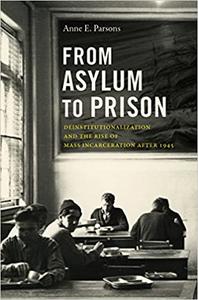
Anne E. Parsons, "From Asylum to Prison: Deinstitutionalization and the Rise of Mass Incarceration After 1945 "
English | ISBN: 1469640635 | 2018 | 221 pages | PDF | 4 MB
To many, asylums are a relic of a bygone era. State governments took steps between 1950 and 1990 to minimize the involuntary confinement of people in psychiatric hospitals, and many mental health facilities closed down. Yet, as Anne Parsons reveals, the asylum did not die during deinstitutionalization. Instead, it returned in the modern prison industrial complex as the government shifted to a more punitive, institutional approach to social deviance. Focusing on Pennsylvania, the state that ran one of the largest mental health systems in the country, Parsons tracks how the lack of community-based services, a fear-based politics around mental illness, and the economics of institutions meant that closing mental hospitals fed a cycle of incarceration that became an epidemic.
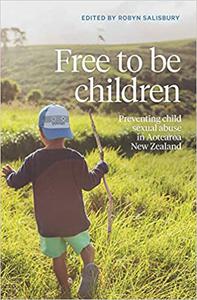
Robyn Salisbury, "Free to Be Children: Preventing child sexual abuse in Aotearoa New Zealand"
English | ISBN: 0995123004 | 2020 | 312 pages | EPUB | 2 MB
It's time to do something different to stop child sexual abuse in Aotearoa New Zealand. It wrecks lives, families, and communities. In this landmark book, well-known registered clinical psychologist Robyn Salisbury seeks the wisdom of those who have devoted many years, each in their own domain, to working with child sexual abuse. Free to Be Children makes a major and unique contribution to understanding how we can best tackle the tragedy of child sexual abuse as a nation, and how urgent it is that we do. From its foreword by Children's Commissioner Judge Andrew Becroft to its chapters by survivors, clinical psychologists, the Chief Censor, experts on child sex-trafficking, and psychotherapists, the expertise contained in its pages offers a blueprint for best practice and cannot be ignored.
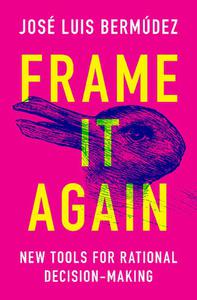
Frame It Again: New Tools for Rational Decision-Making by José Luis Bermúdez
English | 2020 | ISBN: 1107192935 | 340 pages | PDF | 4,6 MB
Framing effects are everywhere. An estate tax looks very different to a death tax. Gun safety seems to be one thing and gun control another. Yet, the consensus from decision theorists, finance professionals, psychologists, and economists is that frame-dependence is completely irrational. This book challenges that view. Some of the toughest decisions we face are just clashes between different frames. It is perfectly rational to value the same thing differently in two different frames, even when the decision-maker knows that these are really two sides of the same coin. Frame It Again sheds new light on the structure of moral predicaments, the nature of self-control, and the rationality of co-operation. Framing is a powerful tool for redirecting public discussions about some of the most polarizing contemporary issues, such as gun control, abortion, and climate change. Learn effective problem-solving and decision-making to get the better of difficult dilemmas.
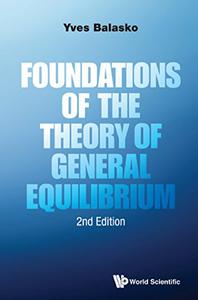
Yves Balasko, "Foundations of General Equilibrium Theory"
English | 2016 | ISBN: 9814651702 | PDF | pages: 281 | 2.8 mb
The economic theory of general equilibrium underpins the most important models used in economic theory in general and in its more specialized areas such as macroeconomics, international trade, environmental economics, growth theory, and developmental economics. In Foundations of the Theory of General Equilibrium, leading academic scholar, Yves Balasko offers a good introduction to the economic theory of general equilibrium and makes use of various mathematical tools as intuitive and easy as possible. The second half of the book addresses properties of the general equilibrium model that are still at the frontier of current research. These properties deal with the characterization of economies with a unique equilibrium and, more generally, with the relationships between the number of equilibria and the fundamentals of an economy.
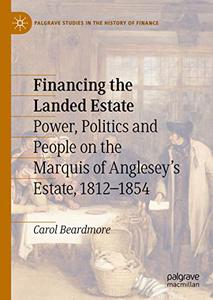
Carol Beardmore, "Financing the Landed Estate: Power, Politics and People on the Marquis of Anglesey's Estate, 1812-1854"
English | 2019 | ISBN: 3030145514 | PDF | pages: 242 | 2.2 mb
While there is an extensive historiography which explores English agriculture in the nineteenth century, there has been less attention paid to individual estates and in particular the role of the land agent within their management, administration and participation in rural community relationships. Nowhere is this more obvious in the lack of research into the financial history of the landed estate, even though in the early nineteenth century these were some of the largest businesses in England. The Castleman letters are a rich source which detail the intricate working, financial, social and political relationships which constituted the foundation of the landed estate. The vouchers of which more than 10,000 have survived alongside the rental accounts have rarely been examined. On their own they illustrate, for example: the sums paid out on maintenance, the interest payments on mortgages, charitable expenditure, spending on property repairs and one-off payments for a wide and diverse range of items. Together with the diurnal correspondence all three aspects of the archive detail the daily financial undertakings and form the foundation of a new financial history of the estate. This book will show that estate management was underpinned by an inherent understanding of the financial decisions which needed to be taken, and will be of interest to academics and researchers of financial history.
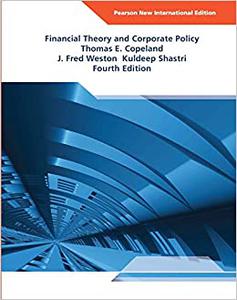
Prof. Dr. Thomas E. Copeland / Prof. Dr. J. Fred Weston / Prof. Dr. Kuldeep Shastri, "Financial Theory & Corporate Policy PNIE"
English | 2013 | pages: 924 | ISBN: 1292021586, 9783815582459 | PDF | 5,6 mb
Financial Theory and Corporate Policy
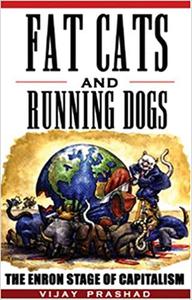
Vijay Prashad, "Fat Cats and Running Dogs: The Enron Stage of Capitalism"
English | 2002 | ISBN: 1567512186, 1567512194 | PDF | pages: 264 | 35.7 mb
From the author of two Village Voice books of the year comes a ruthless expose of the raptors at Enron. Behind the screams over workers' disappearing pensions, disappearing jobs, and disappearing CEO responsibility lies a bigger story: What Enron has done to the world.
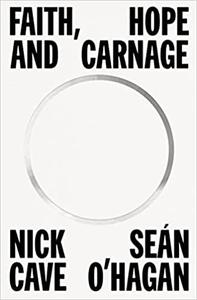
Nick Cave, "Faith, Hope and Carnage"
English | ISBN: 0374607370 | 2022 | 304 pages | EPUB | 819 KB
Faith, Hope and Carnage is a book about Nick Cave's inner life.
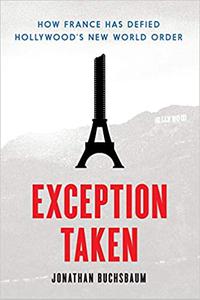
Jonathan Buchsbaum, "Exception Taken: How France Has Defied Hollywood's New World Order "
English | ISBN: 0231170661 | 2017 | 424 pages | EPUB, PDF | 5 MB + 12 MB
In Exception Taken, Jonathan Buchsbaum examines the movements that have emerged in opposition to the homogenizing force of Hollywood in global filmmaking. While European cinema was entering a steady decline in the 1980s, France sought to strengthen support for its film industry under the new Mitterrand government. Over the following decades, the country lobbied partners in the European Economic Community to design strategies to protect the audiovisual industries and to resist cultural free-trade pressures in international trade agreements. These struggles to preserve the autonomy of national artistic prerogatives emboldened many countries to question the benefits of accelerated globalization.
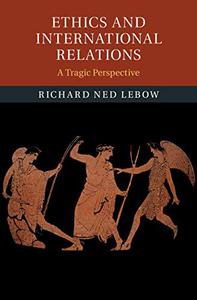
Ethics and International Relations: A Tragic Perspective by Richard Ned Lebow
English | 2020 | ISBN: 1108843468, 1108825168 | 270 pages | PDF | 1,4 MB
Lebow demonstrates that foreign policies consistent with generally accepted ethical norms are more likely to succeed, and those at odds with them to fail. Constructing original data sets and analyzing multiple case studies, Lebow makes an empirical case for ethics in international relations. His approach looks to create a productive dialogue between those who ask primarily 'ought' questions and those who pose 'is' questions. The former want to establish appropriate criteria for the behaviour of state and non-state actors and the discourses that lead to their policy decisions, whereas scholars who pose 'is' questions are concerned with how political actors behave and the principles and assumptions that might explain their behaviour. Lebow bridges the gap between 'is' and 'ought' questions by making an instrumental argument in favour of ethical foreign policy.He examines policymaking as well as policy, offering ethical guidelines for policymaking that are likely to result in more successful policies.


